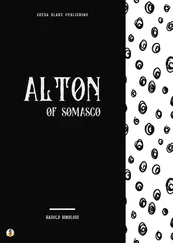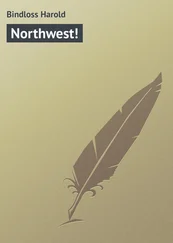Harold Bindloss - Wyndham's Pal
Здесь есть возможность читать онлайн «Harold Bindloss - Wyndham's Pal» — ознакомительный отрывок электронной книги совершенно бесплатно, а после прочтения отрывка купить полную версию. В некоторых случаях можно слушать аудио, скачать через торрент в формате fb2 и присутствует краткое содержание. Издательство: Иностранный паблик, Жанр: foreign_prose, на английском языке. Описание произведения, (предисловие) а так же отзывы посетителей доступны на портале библиотеки ЛибКат.
- Название:Wyndham's Pal
- Автор:
- Издательство:Иностранный паблик
- Жанр:
- Год:неизвестен
- ISBN:нет данных
- Рейтинг книги:5 / 5. Голосов: 1
-
Избранное:Добавить в избранное
- Отзывы:
-
Ваша оценка:
- 100
- 1
- 2
- 3
- 4
- 5
Wyndham's Pal: краткое содержание, описание и аннотация
Предлагаем к чтению аннотацию, описание, краткое содержание или предисловие (зависит от того, что написал сам автор книги «Wyndham's Pal»). Если вы не нашли необходимую информацию о книге — напишите в комментариях, мы постараемся отыскать её.
Wyndham's Pal — читать онлайн ознакомительный отрывок
Ниже представлен текст книги, разбитый по страницам. Система сохранения места последней прочитанной страницы, позволяет с удобством читать онлайн бесплатно книгу «Wyndham's Pal», без необходимости каждый раз заново искать на чём Вы остановились. Поставьте закладку, и сможете в любой момент перейти на страницу, на которой закончили чтение.
Интервал:
Закладка:
Marston thought Wyndham did not look daunted. In a sense, his venture was reckless, but Harry tried, and did, things others thought beyond their powers. On the whole Marston imagined his boldness was justified.
"If money can help, you know where it can be got," he said.
Wyndham's half-ironical glance softened.
"Thanks, Bob! So far, I haven't gone begging from my friends; but if I can use your money without much risk, I will borrow. I think you know this."
"What's mine is yours," Marston remarked and went to the cabin for a chart, with which he occupied himself.
He studied the chart and sailing directions when he had nothing to do and was rather surprised that Wyndham did not. It was a long run to the Caribbean and would be longer if they drifted into the equatorial calms. Marston had a yacht master's certificate, although he was rather a seaman than a navigator. He could find his way along the coast by compass and patent-log, but to steer an ocean course was another thing. One must be exact when one calculated one's position by the height of the sun and stars.
For some time they made good progress and then the light wind dropped and Columbine rolled about in a glassy calm. The swell ran in long undulations that shone with reflected light, and there was no shade, for they lowered all sail to save the canvas from burning and chafing. The sun pierced the awning, and it was intolerably hot. They had reached the dangerous part of the old slavers' track; the belt of stagnant ocean where the south wind stopped and the north-east had not begun. The belt had been marked long since by horrors worse than wreck, for while the crowded brigs and schooners drifted under the burning sun, fresh water ran out and white men got crazed with rum while negroes died from thirst.
Wyndham lounged one morning under the awning after his bath. He wore silk pyjamas, a red silk belt, and a wide hat of double felt. He looked cool and Marston thought he harmonized with his surroundings; the background of dazzling water, the slanted masts that caught the light as they swung, and the oily black figures of the naked crew. He wondered whether Harry had inherited something from ancestors who had known the tragedies of the middle passage. Marston himself was wet with sweat, his eyes ached, and his head felt full of blood.
"We may drift about for some time," he said, throwing down a book he had tried to read. "The sailing directions indicate that the Trades are variable near their southern limit."
"It's a matter of luck," Wyndham agreed, and Marston started because his comrade's next remark chimed with his thoughts. "When I studied some of the house's old records I found that two of our brigs vanished in the calm belt. One wondered how they went. Fire perhaps, or the slaves broke the hatch at night. Can't you picture their pouring out like ants and bearing down the drunken crew? The crews did drink; slaving was not a business for sober men. Hogsheads of rum figure in our old victualing bills."
He paused and resumed with a hard smile: "Well, it was a devilish trade. One might speculate whether the responsibility died with the men engaged in it and vanished with the money they earned. None of the Wyndhams seem to have kept money long; luck went hard against them. When they did not squander, misfortune dogged the house."
"Superstition!" Marston exclaimed.
Wyndham laughed. "It's possible, but superstition's common and all men are not fools. I expect their fantastic imaginings hold a seed of truth. Perhaps somebody here and there finds the seed and makes it grow."
"In Africa, they water the soil with blood. It's not a white man's gardening." Marston rejoined and went forward to the bows, but got no comfort there.
The sea shone like polished steel, heaving in long folds without a wrinkle on its oily surface. But for the sluggish rise and fall, one might have imagined no wind had blown since the world was young.
For a week Columbine rolled about, and then one morning faint blue lines ran across the sea to the north. Gasping and sweating with the effort, they hoisted sail and sent up the biggest topsail drenched with salt water. Sometimes it and the light balloon jib filled and although the lower canvas would not draw, Columbine began to move. One could not feel her progress, there was no strain on the helm, but silky ripples left her side and slowly trailed astern.
For all that, she went the wrong way, heading south into the calm, and they could not bring her round. Her rudder had no grip when they turned the wheel, and sometimes she stopped for an hour and then crawled on again. The Krooboys panted in the shade of the shaking sails, and Marston groaned and swore when he took his glasses and slackly climbed the rigging. The dark-blue lines were plainer, three or four miles off, and he thought they marked the edge of the Trade-breeze.
Wyndham alone looked unmoved; he lay in a canvas chair under the awning, and smoked and seemed to dream. Marston wondered what he dreamed about and hoped it was Flora. In the afternoon Marston felt he must find some relief.
"I want to launch a boat and tow her," he said. "There's wind enough not far off to keep her steering."
Wyndham nodded. "Very well. It's recorded that they towed the Providence for three days and used up a dozen negroes in the boats, besides some gallons of rum. The fellow who kept the log was obviously methodical. However, I want to keep our boys, and you can't tow in the sun."
"It's unthinkable," Marston agreed. "We'll begin at dark."
CHAPTER VII
THE TOW
At sunset they hoisted out two boats, for wages are low in Africa and Columbine carried a big crew. Wyndham stopped on board to steer while Marston went in the gig, and the sun touched the horizon when he began to uncoil a heavy warp. He was only occupied for a few minutes but when he had finished it was dark. The relief from the glare was soothing and the gloom was marked by a mistiness that gave him hope. He knew a faint haze often follows the North-East Trades.
The Krooboys dipped the oars, and the water glimmered with luminous spangles under the blades and fell like drops of liquid fire. This was all the light, except for the sparkle at Columbine 's bows as she slowly forged ahead. She came on, towering above the boats in a vague dark mass, until she sank with the swell and the tightening rope jerked them rudely back. On heaving water, towing a large vessel is strenuous work, for her progress is a series of plunges and one cannot keep an even strain on the rope.
When they began to row Marston's boat was drawn back under the yacht's iron martingale. Her bowsprit loomed above it, threatening and big, and the oars bent as the Kroos drove the boat ahead. In a few moments she stopped and forged back towards the yacht, but the jerk was less violent. Columbine was moving faster and the heavy warp worked like a spring, easing the shock. Marston's business, however, was to tow her round and when she began to turn he had trouble to keep his boat in line. The tightening rope rasped across her stern, the gig swerved and listed over, until it looked as if she would capsize. The oars on one side were buried deep, the men could not clear them for another stroke, and the threatening martingale rose and fell close astern.
Marston, when the rope would let him, sculled with a long oar, and presently the skin peeled from his hands. His throat got parched, sweat ran down his face and he gasped with straining breath, but it was better to use his strength than risk the martingale's being driven into his back. They pulled her round and it was easier afterwards although he could not relax much. The yacht was stealing through the water, but they must keep up her speed or the violent jerks would begin again. It was only possible to rest for a moment on the crest of the swell when the warp absorbed the backward pull.
Читать дальшеИнтервал:
Закладка:
Похожие книги на «Wyndham's Pal»
Представляем Вашему вниманию похожие книги на «Wyndham's Pal» списком для выбора. Мы отобрали схожую по названию и смыслу литературу в надежде предоставить читателям больше вариантов отыскать новые, интересные, ещё непрочитанные произведения.
Обсуждение, отзывы о книге «Wyndham's Pal» и просто собственные мнения читателей. Оставьте ваши комментарии, напишите, что Вы думаете о произведении, его смысле или главных героях. Укажите что конкретно понравилось, а что нет, и почему Вы так считаете.












